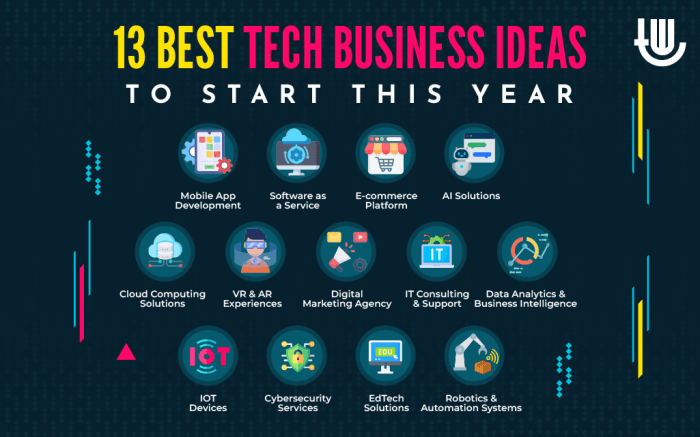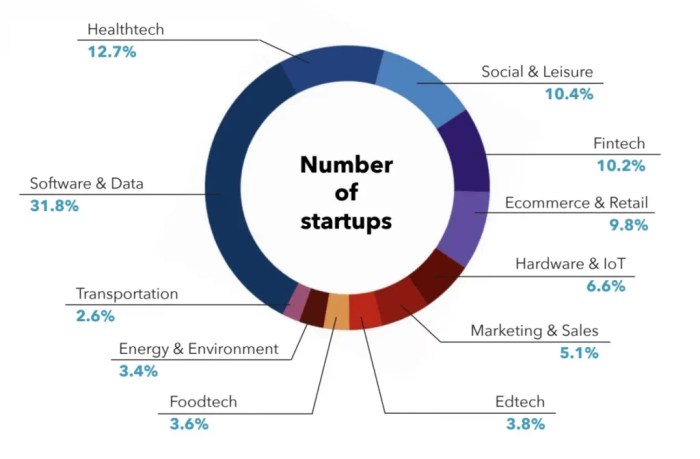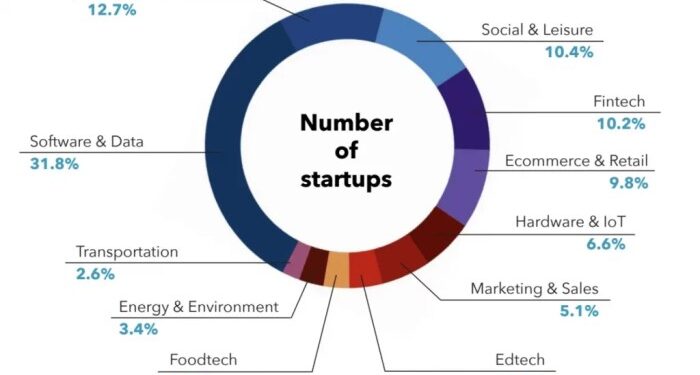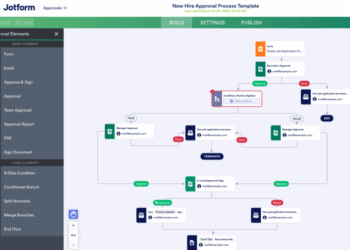Exploring the latest trends in tech startup businesses for the current year, this comprehensive guide delves into the key aspects shaping the industry. From emerging technologies to sustainability practices, this overview provides valuable insights for entrepreneurs and tech enthusiasts alike.
As we navigate through the dynamic landscape of tech startups, it's crucial to stay informed about the trends that are driving innovation and success in the industry.
Top Emerging Technologies in Tech Startups

With the rapid advancement of technology, tech startups are constantly embracing new emerging technologies to stay competitive in the market. These technologies are reshaping the landscape for new businesses and offering unique opportunities for growth and innovation.
Artificial Intelligence (AI)
Artificial Intelligence (AI) is one of the most promising emerging technologies adopted by tech startups. AI-powered solutions can automate tasks, enhance decision-making processes, and improve customer experiences. However, the main challenge lies in the high costs associated with implementing AI and the need for skilled professionals to develop and maintain these systems.
Internet of Things (IoT)
The Internet of Things (IoT) is another popular technology among tech startups, allowing for the interconnectivity of devices and data sharing. IoT enables businesses to collect valuable insights, optimize operations, and create personalized experiences for customers. Yet, the security risks associated with IoT devices remain a concern for many startups.
Blockchain Technology
Blockchain technology has gained traction in tech startups due to its decentralized and secure nature. Startups are leveraging blockchain for various applications such as secure transactions, supply chain management, and smart contracts. However, scalability issues and regulatory challenges pose obstacles for widespread adoption.
Impact of AI and Machine Learning on Tech Startups
AI and machine learning technologies have been transforming the landscape of tech startups, offering innovative solutions and opportunities for growth.
Enhanced Decision Making
AI and machine learning algorithms enable startups to analyze vast amounts of data quickly and accurately, providing valuable insights for strategic decision-making.
Personalized User Experience
Startups are leveraging AI to create personalized user experiences, from tailored product recommendations to customized marketing campaigns, leading to increased customer engagement and satisfaction.
Automation of Routine Tasks
By automating routine tasks through AI and machine learning, startups can streamline operations, reduce costs, and allocate resources more efficiently, allowing them to focus on innovation and growth.
Challenges and Opportunities
- Challenges: Some startups may face challenges in implementing AI due to high costs, lack of expertise, and data privacy concerns. It is crucial for startups to address these challenges to fully leverage the benefits of AI.
- Opportunities: AI presents opportunities for startups to gain a competitive edge, improve scalability, and enhance customer experiences. By embracing AI and machine learning technologies, startups can drive innovation and achieve sustainable growth.
Sustainability Practices in Tech Startup Businesses
In recent years, there has been a noticeable shift towards incorporating sustainability practices into the business models of tech startups. This trend reflects a growing awareness of environmental issues and a recognition of the importance of operating in an eco-friendly manner.One of the specific ways in which tech startups are integrating sustainability into their products or services is by using renewable energy sources to power their operations.
This includes utilizing solar panels, wind turbines, or other forms of clean energy to reduce their carbon footprint and minimize their impact on the environment.Another common practice among tech startups is the implementation of recycling programs for electronic waste. Many startups are now offering take-back programs for old electronic devices, ensuring that they are properly recycled or refurbished rather than ending up in landfills.By adopting sustainable practices, tech startups not only contribute to a healthier environment but also stand to benefit financially.
For instance, by reducing energy consumption and waste, startups can lower their operating costs and improve their overall efficiency. Additionally, consumers are increasingly drawn to companies that prioritize sustainability, giving startups a competitive edge in the market.
Use of Sustainable Materials
Tech startups are increasingly using sustainable materials in the production of their products. This includes utilizing recycled plastics, biodegradable packaging, and responsibly sourced materials to reduce their environmental impact. By prioritizing the use of sustainable materials, startups can appeal to environmentally conscious consumers and differentiate themselves in the competitive tech industry.
Carbon Offsetting Initiatives
Many tech startups are also investing in carbon offsetting initiatives to mitigate their carbon emissions. This can involve supporting reforestation projects, renewable energy initiatives, or purchasing carbon credits to offset their own carbon footprint. By taking proactive steps to neutralize their environmental impact, startups can demonstrate their commitment to sustainability and environmental stewardship.
Energy-Efficient Technologies
Tech startups are incorporating energy-efficient technologies into their products and services to reduce energy consumption and minimize their environmental footprint. This includes developing software solutions that optimize energy usage, creating hardware devices with low power consumption, and promoting energy-saving practices among their employees and customers.
By prioritizing energy efficiency, startups can not only reduce their environmental impact but also save on energy costs in the long run.
Remote Work Culture in Tech Startups
The shift to remote work has significantly impacted tech startup businesses, requiring them to adapt to new challenges and opportunities in creating a strong company culture in a virtual environment.
Strategies for Maintaining Company Culture
- Regular virtual team meetings to maintain communication and collaboration among team members.
- Utilizing team-building activities and virtual social events to foster a sense of community and connection.
- Encouraging open communication channels through messaging platforms and video conferencing tools.
- Providing opportunities for professional development and skill enhancement through online resources and training programs.
Challenges of Remote Work Culture
- Difficulty in monitoring employee productivity and engagement without physical presence in the office.
- Potential feelings of isolation and disconnection among team members leading to decreased morale and motivation.
- Communication barriers due to reliance on digital tools, leading to misunderstandings and misinterpretations.
- Security concerns related to remote access to sensitive company data and information.
Advantages of Remote Work Culture
- Increased flexibility for employees in managing work-life balance and optimizing productivity based on individual preferences.
- Access to a global talent pool for recruitment, enabling diversity and innovation within the startup team.
- Cost savings on office space and overhead expenses, allowing startups to allocate resources more efficiently.
- Reduced commute times and environmental impact, promoting sustainability and employee well-being.
Summary

In conclusion, staying updated on the top tech startup business trends this year is essential for those looking to thrive in the competitive market. By embracing emerging technologies, sustainability practices, and remote work culture, startups can position themselves for growth and longevity in the ever-evolving tech sector.
Questions Often Asked
What are some of the most promising emerging technologies adopted by tech startups?
Some of the most promising emerging technologies include AI, blockchain, and Internet of Things (IoT) solutions.
How are tech startups incorporating sustainability into their business models?
Tech startups are integrating sustainability by using renewable energy sources, reducing waste, and promoting eco-friendly practices in their operations.
What strategies can tech startups employ to maintain a strong company culture in a remote work environment?
Tech startups can maintain a strong company culture in a remote work setting by fostering open communication, organizing virtual team-building activities, and providing support for remote employees.
What benefits do tech startups gain from adopting sustainable practices?
By adopting sustainable practices, tech startups can enhance their brand reputation, attract environmentally conscious customers, and contribute to a healthier planet.













